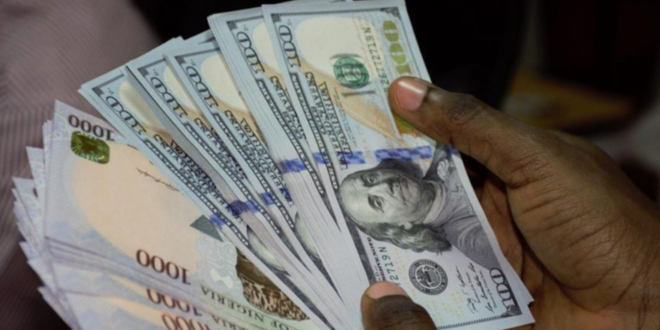The Nigerian Naira experienced a significant depreciation at the parallel section of the foreign exchange market on Friday, reversing its previous trend of appreciation.
The local currency fell by N100, a 6.67 percent decrease, to close at N1,600 per US dollar.
This shift in the foreign exchange landscape comes as bureau de change (BDC) operators reported a buying rate of N1,550 and a selling rate of N1,600, marking a profit margin of N50.
At the official window, the Naira showcased an appreciation, strengthening to N1,548.25 against the dollar, up by 2.94 percent from Thursday’s rate of N1,595 per dollar.
This divergence in performance between the parallel market and the official window underscores the complex dynamics at play in Nigeria’s forex market.
The depreciation in the parallel market is unfolding against the backdrop of significant regulatory actions by the Central Bank of Nigeria (CBN).
In a bold move to tighten control and ensure compliance with regulatory provisions, the CBN revoked the licences of 4,173 BDC operators on Friday.
This drastic step is part of the apex bank’s broader strategy to overhaul the regulatory and supervisory framework governing BDC operations in the country.
These regulatory adjustments are in line with the CBN’s continued efforts to establish a market-determined exchange rate for the Naira, aiming for stabilization and greater transparency in the forex market.
Earlier in the week, on February 27, 2024, the CBN had announced its approval for the sale of foreign exchange to BDC operators.
This was shortly followed by a directive on February 23, mandating sellers dealing with amounts equivalent to $10,000 and above to BDCs to declare the source of their forex, in a bid to enhance accountability and reduce illicit financial flows.
Additionally, the CBN has introduced new limits on the sale of foreign currency by BDCs, capping sales at $4,000 and $5,000 for personal and business travel allowances, respectively, once every six months.
Meanwhile, the US dollar fell to its lowest level in six weeks following the release of the US jobs report. The report indicated that the US economy added 190,000 jobs in February, slightly below the market expectations of 200,000.
This has led to speculation that the Federal Reserve may slow down the pace of interest rate hikes, causing the dollar to weaken against other major currencies.
Subscribe to the Advocate News letter and receive news updates daily in your inbox.
 Advocate.ng Latest news update on politics, entertainment, sport and more
Advocate.ng Latest news update on politics, entertainment, sport and more




